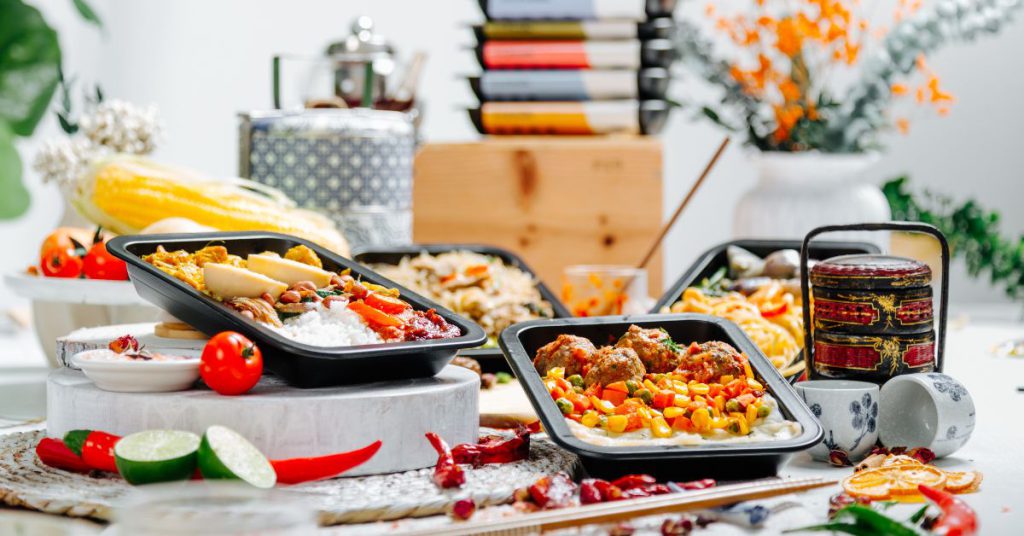Depending on how you look at it, Alexis Bauduin’s decision to start healthy foods brand YoloFoods almost a decade ago could seem like a YOLO (you only live once) decision.
After all, he had been a corporate high-flyer before he went on The Apprentice Asia in 2013, where he met—and subsequently quit corporate to work with—Tony Fernandes, CEO of Capital A (then airasia).
This opportunity changed the course of his life, catalysing his dive into entrepreneurship and F&B.
In 2015, Alexis launched YoloFoods’ first store in Singapore, and one of the restaurant brand’s next milestones was getting halal certified.
But if you look up YoloFoods today, you’ll see that the business has shifted to offer delivery services for their own packaged meals instead.
What happened?
From dine in to delivery
“The decision to pivot from our dine-in focus to online services, particularly daily meal plans and later frozen meal offerings, was primarily driven by the challenges posed by COVID-19,” Alexis told Vulcan Post in our latest interview.
“With our restaurant business taking a significant hit, we quickly realised the need to adapt to the changing landscape.”
As it turns out though, this pivot was more than a reactionary move; it also aligned with YoloFoods’ long-term vision of scaling regionally and across Asia Pacific eventually.

Like many other businesses, YoloFoods saw the opportunities opened up to them by going online, such as being able to reach a broader audience and offer their services and products beyond the confines of physical locations.
This also gave them insights into consumer preferences, allowing them to expand their offerings to include frozen meals and snacks for adults and kids.
Dishing out strong competition
These changes are timely, as the ready-to-eat (RTE) meal industry has seen “explosive growth” throughout the APAC region, Alexis observed.
“Initially driven by fresh offerings and fresh meal plan providers, the RTE market is witnessing significant expansion, particularly in the frozen segment,” he added.
This means more competition, of course, so YoloFoods has prioritised several key areas in the business to maintain a competitive edge in the landscape.
Product quality is a must as taste is paramount in the food industry, and YoloFoods ensures that high expectations are met by conducting surveys and getting customer feedback.
“Drawing inspiration from these insights, we develop new recipes that offer healthier versions of the meals our customers love,” Alexis said.
Today, their menu comprises a diverse selection of 45 meals inspired by various cuisines and blending Asian and Western flavours, the founder shared.
Another key area has been growing their online channels, including their own ecommerce platform, to reach and engage customers. And, of course, carving out a strong brand identity in the digital age.
Keeping things fresh
Change is always happening at YoloFoods, as the team tries to keep things fresh for customers by introducing new meals quarterly. This means five to eight carefully curated products with each new release, Alexis said.
Another slow-burn change the brand is going through is with sustainability. Smart brands know to keep up with the times, and the trend of current times points to more conscious consumption behaviours.
Customers want brands whose ethos lines up with theirs, and some won’t hesitate to drop a brand they love for one that sits better with their beliefs.
To stay ahead of this, YoloFoods is already serving its subscription fresh meal plans (YoloPlans) in recycled sugarcane material that’s biodegradable.
Meanwhile, their frozen meals packaging is recyclable, with Alexis adding that they’re constantly looking to work with more reusable options.
YOLO ambition
A while back, YoloFoods expanded to neighbouring Malaysia and has since served over 8,000 customers there.
Based on our interview with Alexis, it seems like the secret sauce to their success in Malaysia is localisation. They assembled a local team, established a central kitchen in KL, and often come up with campaigns around events like Ramadan and Hari Raya.
They obtained halal certification for their meals there too, enabling their Malaysian Muslim consumers to enjoy their food without worries.
This keen effort for localisation will likely be something the brand carries over to its upcoming launch in China too, come this June.
And YoloFoods isn’t stopping there. In true YOLO spirit, they’ll be doubling down on their efforts to cater to the B2B market by offering bulk orders delivered directly to workplaces.
“Additionally, we are also exploring collaborations with local health facilities seeking meals for their inpatients and teams,” Alexis said.
What about going back into retail then, now that the brand has seemingly established a solid foundation for its ecommerce business?
To this, the founder replied, “We’ve made a strategic decision to move away from the retail game, prioritising avenues that align more closely with our growth objectives.”
But they’re also not completely dismissing the idea of traditional ideas in the future.
If there’s an innovative concept they can hop onto, you’d best believe YoloFoods will be making a fast move.
“One possibility is the creation of experience centres, akin to Apple Stores, where customers can engage with the YoloFoods brand and experience firsthand our commitment to healthier eating and holistic wellness,” Alexis envisioned.
Exciting stuff, and though it might seem like a farfetched, ambitious idea… well, YOLO.
Featured Image Credit: YoloFoods